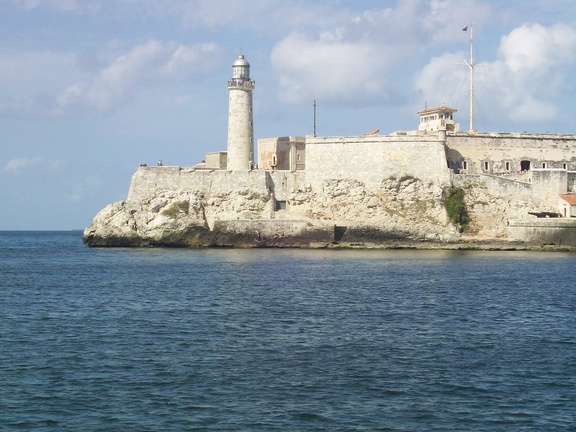Time to lift the embargo on Cuba
- Submitted by: admin
- Culture and Traditions
- History
- Business and Economy
- Politics and Government
- 04 / 14 / 2010

Cuba holds $20 billion in trade with America over a three-year term. Our economy could benefit mightily from better relations, yet we alienate this potential ally.
When I traveled to Cuba with a congressional delegation, it became clear that the embargo is imprudent politically, economically and socially. Everyone we met with -- U.S. and Cuban government officials, trade organizations, journalists, cultural attachés, foreign diplomats and rural farmers -- confirmed this point.
Politically, now that Latin America stands beside Cuba -- as evidenced by diplomatic reinstatements with holdouts El Salvador and Costa Rica -- and the reintegration of Cuba into the Organization for American States and the Community of Latin American and Caribbean States (CLACS) -- the United States risks ruinous relations with countries who see the blockade as backward. The United States is already marginalized: CLACS explicitly bars U.S. participation.
The impact of this Latin tack towards insularity is not insignificant. Consider grandstanding by Brazil's President Lula da Silva, who rebuffed Secretary of State Hillary Clinton's efforts to bring Brazil in on Iran sanctions while courting Cuba's leadership. Lula, capitalizing on Cuba's appetite for growth, proposed investments in industrial, agriculture and infrastructure projects, including ports and hotels, and an agreement with Brazil's oil company.
We will see more of this. The Cubans are seeking suitors. Like the Bank of the South, Latin America's attempt to wean countries off U.S. institutions like the World Bank, the longer we keep Cuba at arm's length, the more likely Brazil and others will take our place. The longer we keep Cuba listed as a state sponsor of terrorism, an allegation roundly criticized by diplomats, the more we risk the credibility of our national security regime and reputation in the region.
Economically, the case for cooperation is even clearer. Despite the trade embargo, there is some engagement. Cuba continues to be reliant on U.S. agriculture. Since 2002, we have been Cuba's largest supplier of food and agricultural products, with Cuba purchasing more than $3.2 billion worth of products since 2001.
This agricultural reliance is in jeopardy, which puts American farmers at risk. In 2008, U.S. food imports to Cuba totaled $712 million, declined to $533 million last year and are declining this year.
Cuba, having witnessed strong economic growth in the early 2000s at 11 and 13 percent, is now struggling to make ends meet, slipping below 2 percent in 2009.
Beyond foodstuffs, other natural resources offer potential for partnership. The U.S. Geological Survey estimates nine billion barrels of oil are available in Cuba, plus an estimated nine billion cubic meters of natural gas.
The Cuban government cites higher oil numbers, at 20 billion barrels. Either way, there's money to be made, and Cubans welcome participation. While the United States disengages, countries like Brazil, Russia, Venezuela and China are talking. We are clearly missing investment opportunities.
Socially, Cubans emphatically embrace the cultural convergences between our countries. Their love of music, art, dance, history and architecture is ubiquitous, drawing 2.5 million tourists annually to Cuba, 800,000 of which are Canadian.
If the travel ban was lifted, two million Americans are expected to travel there immediately, and ultimately growing to four million.
This is hardly surprising. Havana retains the Caribbean's largest, oldest, and best-preserved Spanish colonial architecture. The city's charm is intoxicating.
BY MICHAEL HONDA
Read more: http://www.miamiherald.com/
Comments